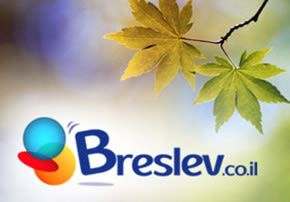
A Taste of the World To Come
Have you ever looked at the reverse side of a beautiful needlepoint? It's a tangle of knots and threads, and it's almost impossible, if not impossible...

Have you ever looked at the reverse side of a beautiful needlepoint? It’s a tangle of knots and threads, and it’s almost impossible, if not impossible, to see the picture that is so apparent on the other side.
"Each time you are with the Tzaddik you should talk out everything in your heart. It is through this that you will come to be merged with the Infinite (the Or Ein Sof, in other words, Hashem), and attain the knowledge that everything that happens to you is for your benefit. Before we attain this understanding, life seems to be a mixture of bad and good, and we bless God accordingly (the good with the bracha "hatov v’hameitiv," "Who is good and does good," and the bad with the bracha "baruch dayan emet," "the true and just judge"). In the future, we will only recite the blessing, "hatov v’hameitiv," "Who is good and does good." Attaining this level is a foretaste of the World to Come" (Likutei Moharan4:9).
"Each time you are with the Tzaddik you should talk out everything that is in your heart."
Rebbe Nachman often speaks about the importance of talking out everything that is in our heart through prayer, while taking a soul-searching look at ourselves – a deep look at who we are and how we’ve gone wrong. In the process, we peel away all the klipot, the layers of anger, resentment, haughtiness, lack of emuna (faith), etc., that are preventing us from discovering and becoming our true selves. We get rid of all the things that are holding us back from being who we really are, and in doing so, we expose the Godly kernel of truth that lies within each and every one of us – that quintessential "pintele Yid." Rebbe Nachman emphasized that in our generation, this type of "twelve step inventory" should be done at a tzaddik’s gravesite.
The first time I traveled to the grave of Rebbe Shimon bar Yochai in Meiron, I was confused by what appeared to be women bawling their eyes out as they spoke to a dead rabbi! Later, I understood that they were taking advantage of holiness that exists at a tzaddik’s gravesite to take a true and honest look at themselves, and, in the process, to purify themselves. They were, as Rebbe Nachman writes, "talking out everything in their heart." Through honestly peeling away the layers and getting to their core, they were also discovering their real desires – what they really and truly wanted in life – and with that newfound clarity they were able to entreat the Almighty to help them attain it.
The most opportune time to make a true "cheshbon hanefesh" "soul accounting," is while praying at a tzaddik’s gravesite, since the tzaddik’s soul is there to guide us. Many people have told me that every time they travel to Rebbe Nachman’s gravesite in Uman, they discover something new about themselves, another aspect of who they are that they must work on to become the person that they truly want to become.
"It is through this that you will come to be merged with the Infinite (the i, in other words, Hashem), and attain the knowledge that everything that happens to you is for your benefit."
Once we’ve cleansed ourselves of all the klipot – we’ve discovered those remnants of anger, resentment, haughtiness, lack of – that are holding us back from discovering that kernel of Godliness that lies within us, we are able to truly connect with the Almighty. We are living on the level of emuna. With real emuna, we understand that everything that happens in this world is for our ultimate benefit. After all, everything that happens is because Hashem wills it to happen – and Hashem only wants our good. Although some things might appear to be negative, if we were to understand them on their deeper level, we would see that they are really good.
Before we attain this understanding, life seems to be a mixture of bad and good, and we bless God accordingly (the good with the bracha "hatov v’hameitiv," "Who is good and does good," and the bad with the bracha "baruch dayan emet," "the true and just judge"). In the future, we will only recite the blessing, "hatov v’hameitiv," "Who is good and does good." Attaining this level is a foretaste of the World to Come."
In the World to Come, we will recite the blessing "hatov v’hameitiv" for those things that appear to be negative, as well as for those things that are obviously positive. That’s because we will understand the underlying meaning of everything we experience. We’ll see the story in its entirety, and see how the challenges facing us were put there for our benefit.
Have you ever looked at the reverse side of a beautiful needlepoint? It’s a tangle of knots and threads, and it’s almost impossible, if not impossible, to see the picture that is so apparent on the other side. Every knot and thread, however, is positioned for a purpose, but unless we turn the needlepoint over, we cannot understand that purpose.
Our lives are like that needlepoint. We only see a tiny segment of the entire picture, so we cannot possibly fathom how everything is intertwined and perfectly positioned to create something that is truly magnificent, much more exquisite than any man-made needlepoint!
Through internalizing that concept, through understanding that we are not in charge and that the One in charge knows exactly what He is doing – we are experiencing a "taste" of the bliss of paradise!
Yes, of course – this world is a world of action. We are charged to do our utmost to improve our lot. We should take steps to assure our financial independence and invest our money wisely. We should try our hardest to get to the airport on time and to have all our documents in order. However, if and when things don’t turn out the way we had planned and hoped, we need to remember that that is exactly the way it is supposed to be. Understanding that Hashem knows exactly what He is doing – in other words, living with a deep, all encompassing emuna – changes our perspective towards everything that occurs in our lives. It is nothing less than a "foretaste of the World to Come."
A Missed Opportunity
Seventeen years ago, I opened a licensed daycare center in my home. The work was extremely difficult, but we have a large family and we needed the income. After ten years of constantly bending down to lift toddlers, my physician told me that I couldn’t continue.
I was devastated. I didn’t see how we would manage financially. Instead of trusting Hashem, I was placing my trust in a group of two year olds!
Today, I can honestly say that closing the daycare center was probably one of the best things that ever happened to me. Hashem presented me with a gift, and instead of thanking Him for it, and rejoicing in it, I worried and fretted. I lost sleep wondering how our family would survive financially. I erroneously fallen into the, “Kochi ve’otzem yadi," My strength and the might of my hand” mode of thinking.
Had I completely lived my emuna; had I completely integrated the realization that Hashem knows exactly what He is doing, and that everything He does is for our benefit, I would have rejoiced in the opportunity He was giving me. But at the time, I was trapped in a different perspective, and unable to view the world through the eyes of truth. I was only able to see that truth through the lenses of hindsight.
Through the Eyes of Truth
Rabbi Zalman Leib Astolin was a Breslov chassid who lived in Tashkent, an Asian city in the former Soviet Union. As a young man, he broke a leg and due to lack of proper medical care, he remained an invalid. Since he was unable to work, he was eligible for a government disability pension, which, in turn, enabled him to devote himself completely to Torah study. His disability provided him with the freedom to develop into a great Torah scholar, who taught many students and kept Judaism alive behind the Iron Curtain!
Rabbi Zalman Leib viewed the world through the eyes of truth. He lived his emuna – it was an integral part of him. He constantly thanked Hashem for giving him the opportunity to be lame! Instead of spending his life cursing the medical system that had made him an invalid and imprisoned him to a life of poverty, he was able to see beyond the facts and rejoice in the opportunity for spiritual liberation that had been presented to him.
Rabbi Zalman Leib lived Rebbe Nachman’s teachings. He found that kernel of underlying Divine truth that exists in everything. He was able to transform an event that most people would have perceived as a tragedy into an opportunity to serve Hashem! Rabbi Zalman Leib lived on the level of "hatov v’hameitiv" and in doing so, he was connecting to the Infinite, a true foretaste of the World to Come.


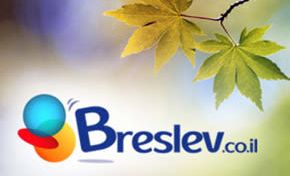
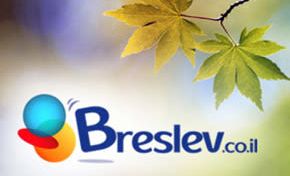
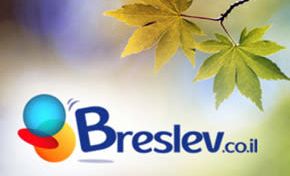
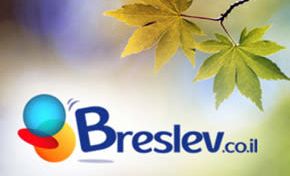

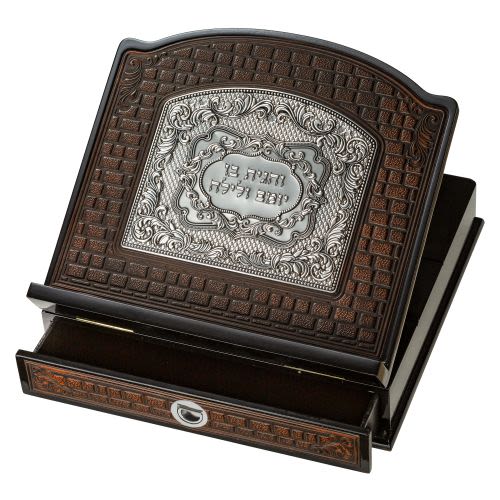

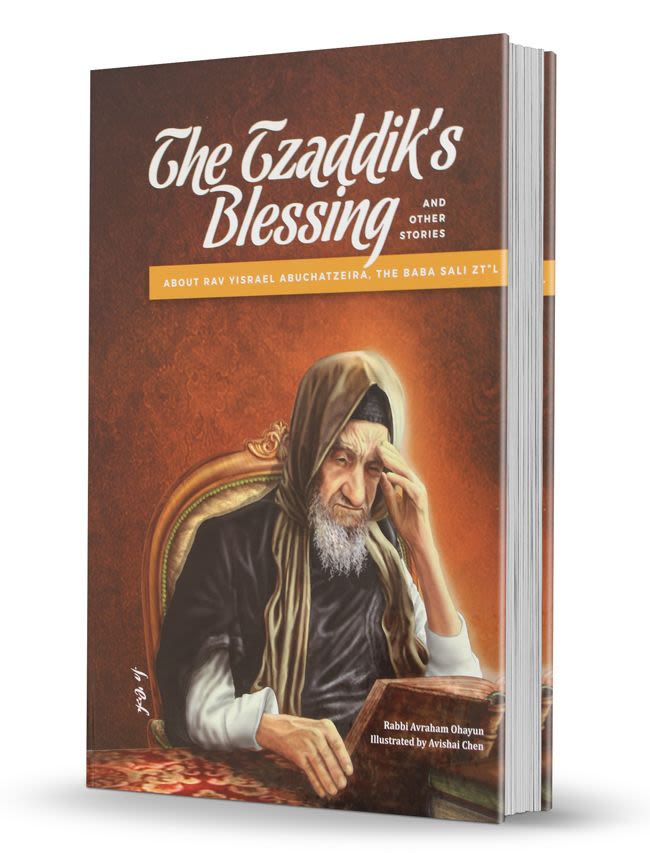
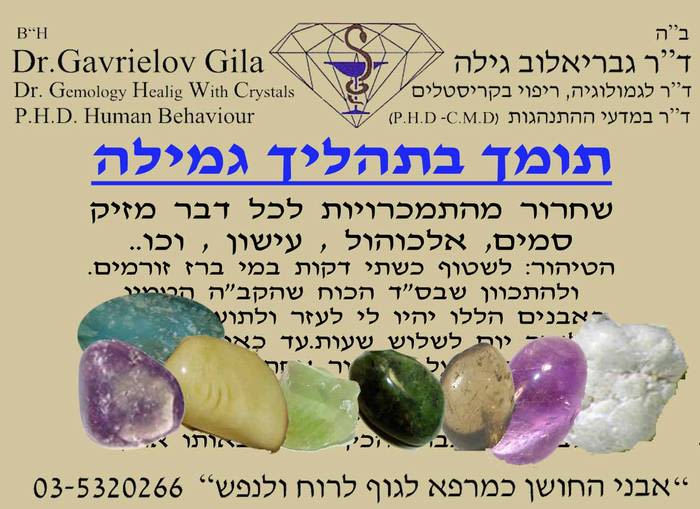

Tell us what you think!
Thank you for your comment!
It will be published after approval by the Editor.